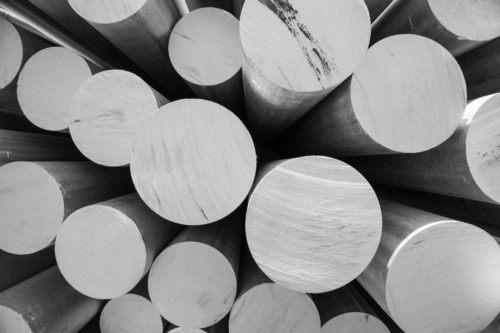The 15-Second Trick For Stahl Specialty Company
The 15-Second Trick For Stahl Specialty Company
Blog Article
Some Known Facts About Stahl Specialty Company.
Table of ContentsHow Stahl Specialty Company can Save You Time, Stress, and Money.The Single Strategy To Use For Stahl Specialty CompanySome Ideas on Stahl Specialty Company You Should KnowGetting My Stahl Specialty Company To WorkThe Ultimate Guide To Stahl Specialty Company
The refined distinction depends on the chemical material. Chemical Contrast of Cast Light weight aluminum Alloys Silicon promotes castability by lowering the alloy's melting temperature and enhancing fluidness during spreading. It plays an important duty in enabling detailed molds to be filled precisely. In addition, silicon adds to the alloy's strength and use resistance, making it useful in applications where resilience is critical, such as automotive parts and engine parts.It likewise improves the machinability of the alloy, making it easier to process into ended up products. In this way, iron adds to the total workability of aluminum alloys.
Manganese adds to the toughness of aluminum alloys and boosts workability. It is commonly used in wrought aluminum products like sheets, extrusions, and profiles. The presence of manganese aids in the alloy's formability and resistance to cracking during fabrication processes. Magnesium is a light-weight aspect that gives toughness and influence resistance to light weight aluminum alloys.
It permits the manufacturing of light-weight elements with outstanding mechanical residential properties. Zinc improves the castability of aluminum alloys and helps regulate the solidification procedure during casting. It improves the alloy's toughness and solidity. It is frequently found in applications where intricate shapes and fine information are essential, such as attractive spreadings and particular vehicle components.
How Stahl Specialty Company can Save You Time, Stress, and Money.
Since aluminum-silicon alloys have excellent casting properties, high gas buildings, easy procedures, and outstanding corrosion resistance, aluminum-silicon alloys are most frequently made use of in the die-casting market in the house and abroad. At the same time, aluminum-silicon alloys are additionally relatively early and widely acknowledged alloys established and made use of in die-casting. After continual research and improvement, a lot of the existing international mainstream aluminum-silicon alloys have been settled and are absolutely nothing even more than A356, A360, A380, ADC12, B390, and A413.
The primary thermal conductivity, tensile strength, yield stamina, and elongation differ. Select suitable resources according to the efficiency of the target item generated. Among the above alloys, A356 has the greatest thermal conductivity, and A380 and ADC12 have the lowest. The tensile limit is the opposite. A360 has the best yield strength and the highest possible prolongation price.

Not known Factual Statements About Stahl Specialty Company
In accuracy casting, 6063 is well-suited for applications where complex geometries and high-quality surface finishes are paramount. Instances consist of telecommunication rooms, where the alloy's exceptional formability permits smooth and aesthetically pleasing layouts while preserving architectural integrity. In the Lights Solutions industry, precision-cast 6063 parts produce sophisticated and effective lighting fixtures that call for intricate forms and good thermal performance.
(https://www.blogtalkradio.com/stahlspecialc)
It causes a better surface finish and far better rust resistance in A360. In addition, the A360 exhibits remarkable prolongation, making it optimal for facility and thin-walled components. In precision casting applications, A360 is well-suited for industries such as Consumer Electronics, Telecommunication, and Power Devices. Aluminum Castings. Its boosted fluidness permits complex, high-precision elements like mobile phone housings and communication device real estates.

In precision spreading, light weight aluminum 413 shines in the Customer Electronic Devices and Power Tools markets. This alloy's exceptional corrosion resistance makes it an excellent selection for outdoor applications, making certain lasting, sturdy products in the pointed out industries.
Stahl Specialty Company - An Overview
When you have determined that the aluminum die casting process is appropriate for your job, an essential next step is picking one of the most appropriate alloy. The aluminum alloy you choose will significantly affect both the casting procedure and the residential or commercial properties of the end product. Due to the fact that of this, you should make your decision thoroughly and take an enlightened strategy.
Establishing the most appropriate light weight aluminum alloy for your application will suggest evaluating a broad selection of qualities. The initial category addresses alloy features that affect the production procedure.
The alloy you choose for die spreading directly affects a number of aspects of the spreading procedure, like just how easy the alloy is to collaborate with and if it is vulnerable to casting problems. Warm cracking, likewise referred to as solidification cracking, is a common die spreading issue for aluminum alloys that can lead to inner or surface-level tears or cracks.
Stahl Specialty Company Things To Know Before You Get This
Specific light weight aluminum alloys are a lot more at risk to warm fracturing than others, and your option needs to consider this. An additional common problem discovered in the die casting of aluminum is die soldering, which is when the cast sticks to the die wall surfaces and makes ejection difficult. It can damage both the actors and the die, so you need to seek alloys with high anti-soldering residential or commercial properties.
Corrosion resistance, which is currently a remarkable quality of light weight aluminum, can vary considerably from alloy to alloy and is an important characteristic resource to take into consideration depending upon the environmental problems your product will be revealed to. Use resistance is another residential property frequently sought in light weight aluminum products and can set apart some alloys.
Report this page